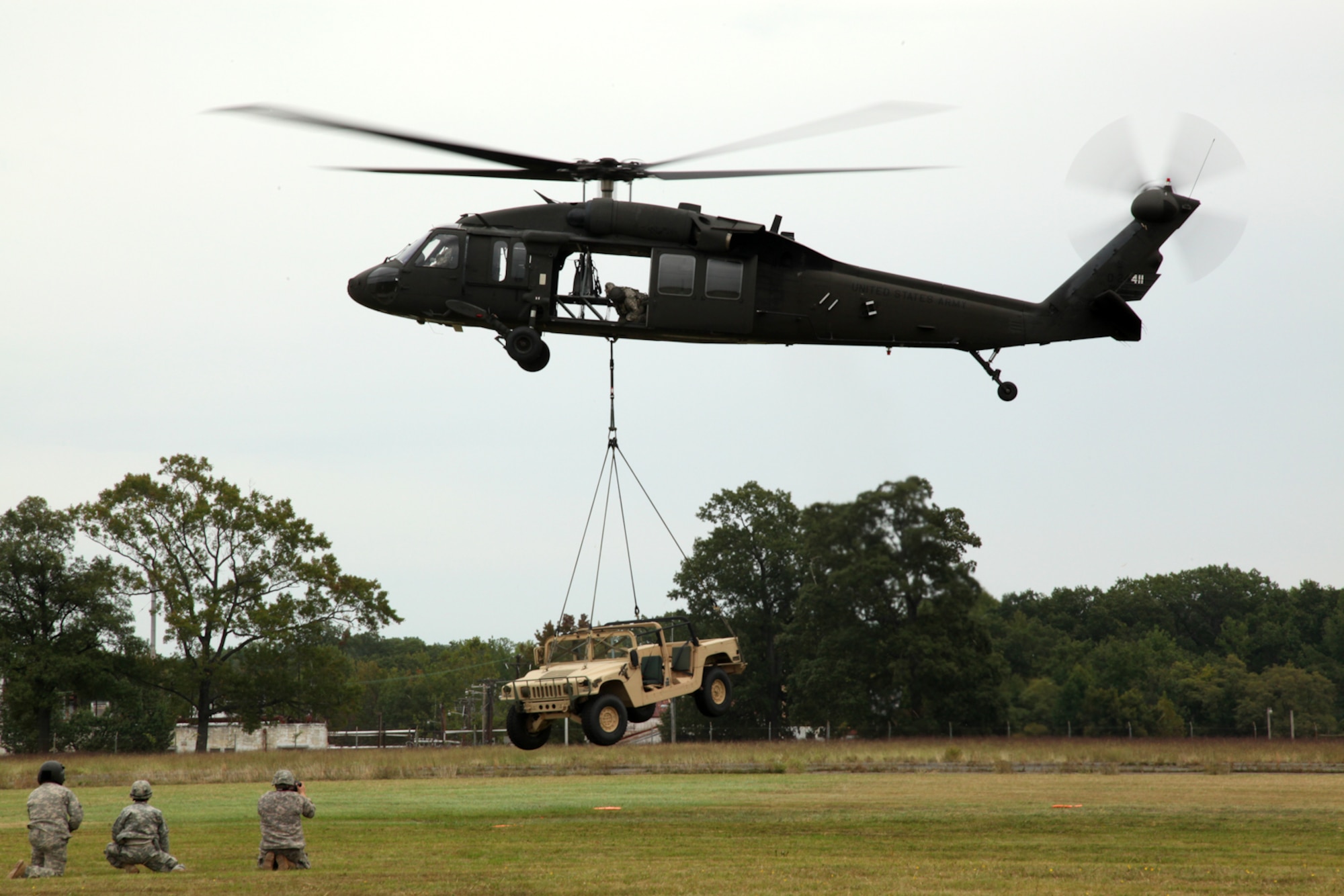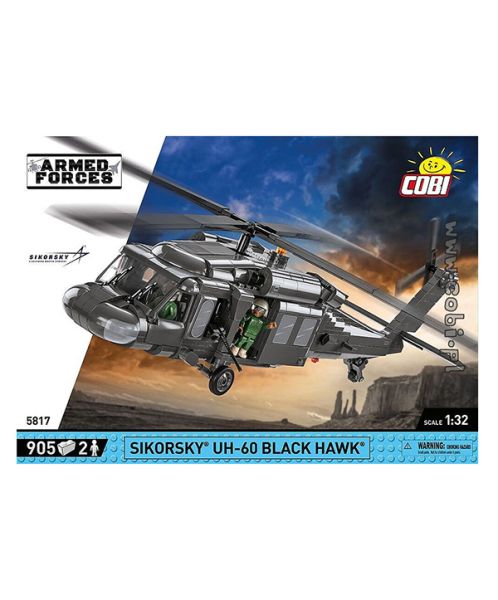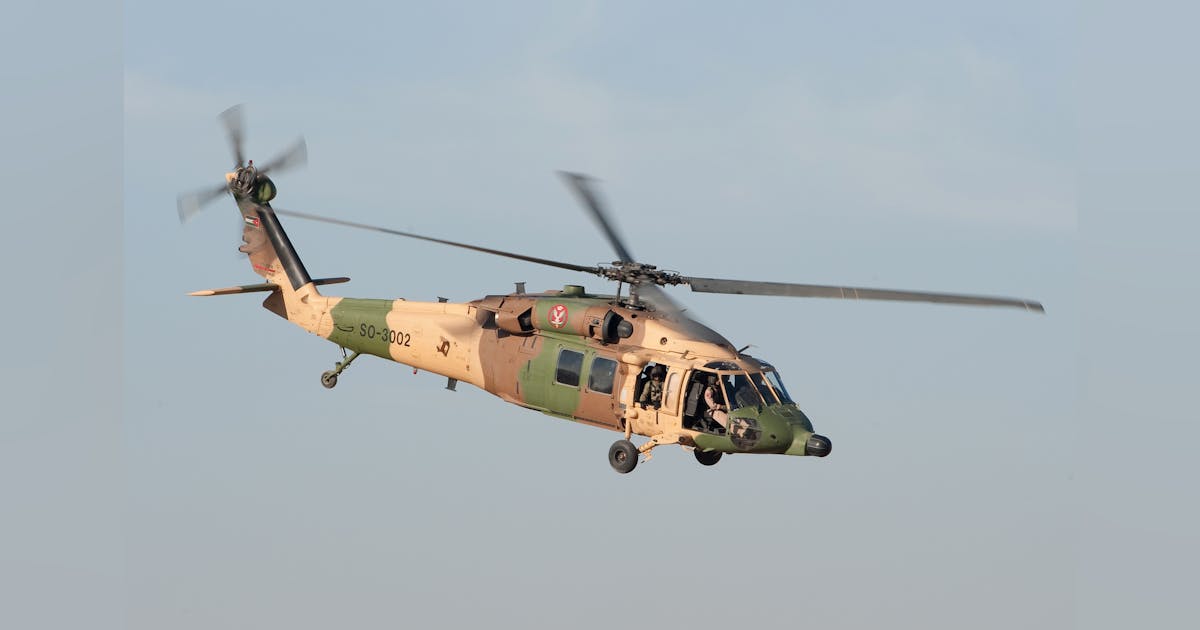Explore the UH60's Effect on Armed force Approach and Tactical Movement
Explore the UH60's Effect on Armed force Approach and Tactical Movement
Blog Article
Recognizing the UH60: The Ultimate Armed Force Helicopter Experience
The UH-60 Black Hawk helicopter stands for a crucial advancement in armed forces aeronautics, integrating durable engineering with complex operational abilities. As we explore the history, requirements, and technological improvements of the UH-60, it becomes obvious that its duty in shaping modern army strategies is both substantial and far-reaching.
Background of the UH-60
Arising from the need for a functional utility helicopter during the late 1960s, the UH-60 Black Hawk was established by Sikorsky Aircraft Company in feedback to the U.S. Army's need for a modern battleground transportation helicopter. The design process began in 1972, finishing in its first flight in October 1974. The Black Hawk was crafted to change the aging UH-1 Iroquois, additionally called the "Huey," which had been a staple of Military aeronautics because the Vietnam War.

Over the years, the Black Hawk has undergone countless upgrades, keeping its importance in modern-day army procedures. Its success has resulted in the development of various variants, offering several branches of the U. UH60.S. military and allied pressures worldwide, developing the UH-60 as a keystone of armed forces aviation history
Trick Attributes and Specs
The UH-60 Black Hawk is distinguished by its advanced layout and durable specifications, which contribute to its convenience on the combat zone. This multi-role helicopter includes a twin-engine setup, powered by 2 General Electric T700-GE-701C engines, providing a maximum result of 1,800 shaft horse power each. This powerful engine configuration enables the Black Hawk to reach a maximum rate of roughly 183 knots (211 mph) and a service ceiling of 19,000 feet.
The aircraft's composite rotor blades provide outstanding lift and maneuverability, while its four-blade major blades system improves stability (UH60). The Black Hawk is outfitted with sophisticated avionics, including an electronic cockpit and evening vision abilities, making sure efficient procedures in diverse problems. Its cabin can fit up to 11 soldiers or carry as much as 8,000 pounds of cargo, making it suitable for different logistical demands
The UH-60's modular design enables very easy maintenance and upgrades, making sure longevity and versatility in evolving armed forces needs. Furthermore, its innovative survivability features, such as crashworthy seats and armor, boost crew security throughout missions. Generally, the UH-60 Black Hawk stands for a considerable innovation in military air travel modern technology.
Operational Roles and Objectives
Convenience is a hallmark of the UH-60 Black Hawk, enabling it to do a wide range of functional duties and goals across various armed forces settings. Primarily designed for troop transport, the Black Hawk can bring approximately 11 soldiers and is regularly utilized in air assault operations, enabling fast insertion and removal of ground pressures in disputed locations.

In addition to army transport, the UH-60 is adept at medical emptying (MEDEVAC) goals. Equipped with advanced clinical tools and employees, it can promptly leave injured soldiers from the field of battle, substantially improving survival rates in important circumstances. The helicopter likewise plays a vital function in logistics support, delivering products, ammo, and devices to ahead operating bases in ascetic settings.
Moreover, the Black Hawk functions as a platform for unique procedures missions, consisting of reconnaissance and straight activity. Its capability to operate in numerous surfaces and its low-flying capabilities make it an important property for systems conducting concealed procedures.

Technological Developments
Innovation in aeronautics technology has actually considerably enhanced the abilities of the UH-60 Black Hawk, ensuring its significance in modern armed forces operations. The helicopter is furnished with advanced avionics systems that supply pilots with exceptional situational recognition, including multi-functional display screens, improved GPS, and sophisticated terrain recognition systems. These features allow precise navigation and goal execution, even in tough environments.
In addition, the integration of electronic interactions systems permits safe and rapid information exchange between devices, facilitating collaborated procedures. The UH-60's updated rotor systems and composite materials add to enhanced efficiency, supplying greater speed, dexterity, and lowered upkeep costs.
Furthermore, improvements in tool systems, such as the ability to deploy precision-guided munitions, enhance the Black Hawk's function in battle circumstances. The helicopter's ability to support medical evacuation missions is likewise boosted by brand-new clinical tools and modern technologies, ensuring efficient patient care in transit.
Lastly, ongoing enhancements in stealth innovation and noise reduction systems even more solidify the UH-60's efficiency in hidden operations, enabling it to operate in hostile territories with a decreased possibility of detection. Collectively, these technical innovations emphasize the Black Hawk's sustaining prestige in armed forces air travel.
Effect on Modern Warfare
Enhanced capacities of the UH-60 Black Hawk have exceptionally influenced modern-day warfare strategies and methods. Its adaptability in troop transportation, medevac operations, and reconnaissance roles has actually redefined the operational landscape for army forces. The helicopter's capacity to operate in diverse atmospheres, from urban setups to rugged surfaces, enables better tactical versatility, making it possible for commanders to adjust quickly to changing field of battle conditions.
The UH-60's innovative avionics and communication systems boost situational awareness, promoting real-time intelligence sharing and control among systems. This capability is browse this site vital in modern uneven war, where fast decision-making can establish the outcome of involvements. The helicopter's capacity for quick insertion and removal of unique procedures forces has ended up being a characteristic of modern armed forces campaigns, emphasizing rate and accuracy.
Moreover, the Black Hawk's combination with unmanned airborne systems and various other advanced innovations symbolizes a change in the direction of multi-domain operations. As a result, the UH-60 not only works as an essential property in conventional conflicts but likewise plays an essential duty in counterinsurgency and peacekeeping goals, emphasizing its long-lasting impact on modern military doctrine and the evolution of warfare.
Conclusion
The UH-60 Black Hawk stands for a pinnacle of military aeronautics, identified by its adaptability, advanced design, and robust design. Continual technical developments and enhancements have more solidified the Black Hawk's strategic value, allowing rapid feedback and versatility in diverse battle scenarios.

Technology in aviation innovation has actually significantly improved the capacities of the UH-60 Black Hawk, guaranteeing its relevance in contemporary army operations.The UH-60 Black Hawk represents a pinnacle of armed forces aeronautics, characterized by its flexibility, progressed design, and durable design.
Report this page